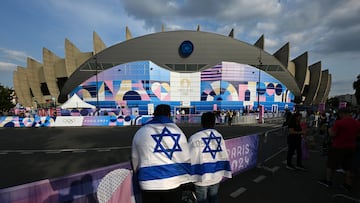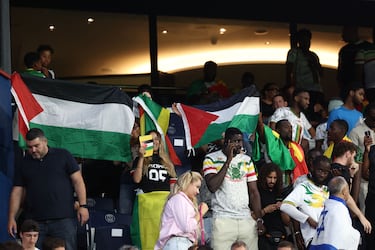Why can Israel participate in the 2024 Olympics in Paris? Is Russia banned because of the war?
As much as the International Olympic Committee (IOC) tries to keep the Games politics-free, global events will be a hot topic this summer.


The eyes of the world will be on France for this summer’s Olympic Games. More than 10,000 athletes will be competing at the 2024 Olympics but none of them will be doing so under the flag of Russia, due to the nation’s ongoing war in Ukraine.
Last January it was announced that athletes from Russia and Belarus would only be allowed to compete in Paris if they do not represent their country, or an organisation affiliated with their country, and were not actively supporting the war.
But this stance has prompted further questions about how the International Olympic Committee (IOC) decides who can compete, particularly amid the horrifying conflict in Gaza. Israeli forces continue to batter the civilian population and have killed more than 39,000 people in response to the October 7 Hamas attack. The matter will be a major talking point throughout the Games and many have pointed to an inconsistency in the IOC’s public stance.

Why is Israel at the Olympic Games?
The IOC is the sole arbitrator of the Olympics, meaning that decisions to ban certain nations from the Games are entirely within its power. Russia’s exclusion has largely been welcomed by the international community and similar moves have been seen across other international competitions, from the UEFA Champions League to the Eurovision Song Contest.
The world is, broadly, in support of these responses to Russian military aggression, but some have questioned why Israel has not been hit with a similar ban.
TIME reports that the decision to ban Russia is the consequence of a violation of a specific point in the Olympic Charter; the Russian Olympic Committee’s takeover of regional Olympic bodies in Ukraine, as a result of the occupation. Responding to comparisons drawn between Russia and Israel, IOC chief Thomas Bach said: “The situation between Israel and Palestine is completely different.”
But there are other ways in which Israel could be considered to be in violation of the Olympic Charter. The Guardian reports that the Yarmouk Stadium in Gaza has been converted into a makeshift detention center by the Israeli military. This could be considered worthy of an Olympic ban, as could the deaths of roughly 300 Palestinian athletes since the outbreak of fighting.
Related stories
Things are further complicated when compared to past examples. Israel is far from the first nation to compete at the Olympic Games while in the midst of a controversial war. The United States and the United Kingdom continued to compete on the world stage while fighting in Iraq, a war which UN Secretary-General Kofi Annan described as “illegal” in 2004.
In short, Israel is allowed to compete in the Olympic Games because the IOC has not issued a ban. Ruling on these matters is a thankless task for the IOC, and one goes far beyond the organisation’s area of expertise. But it is not difficult to spot an inconsistency in the IOC’s justification in this instance, one that will be a source of real controversy throughout this summer’s Games and beyond.


Complete your personal details to comment